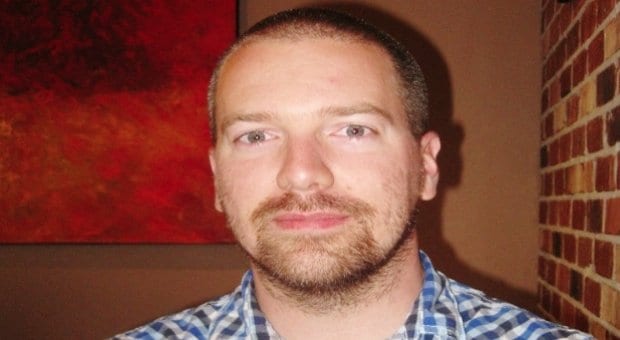Vancouver’s Out Under the Rainbow Spaces Society (OUR Spaces), which aims to build a multipurpose queer community centre, has received charitable status, says its president, Richard Engelhardt.
“We’ve received charitable status from the Canada Revenue Agency. This is a goal that we’ve been pursuing for the three years that we’ve been around,” Engelhardt says.
“It now means that our goals are charitable. It means that what we strive to do is for the benefit of our community,” he says.
“We can confirm that Out Under the Rainbow Spaces Society is a Canadian registered charity,” says Mylène Croteau, spokesperson for the Canada Revenue Agency (CRA). “What this means for donors is that registered charities are able to issue tax receipts to donors for income tax purposes.”
“I think this will lead to the development of fundraising and eventually providing the services we hope to offer the community,” Engelhardt says. “It’s a big step!”
OUR Spaces has been trying to achieve charitable status since 2010, but the CRA rejected its first application.
“The first attempt, we weren’t successful. We didn’t state the objectives clear enough,” Engelhardt says.
Croteau could not comment on why OUR Spaces’ earlier application was rejected, as “the confidentiality provisions of the Income Tax Act prevent the CRA from commenting on specific cases.”
Engelhardt says the OUR Spaces board dedicated more time to drafting its successful second application. “We’ve had to clearly articulate what we want to do and what we envision for Our Spaces.”
“The model that we’ve come up with is a non-profit, shared space idea,” he explains. “So what we see is a building that houses a variety of non-profits. We would work as a non-profit landlord providing space to organizations that are already existing, delivering services in a centralized location.”
Though OUR Spaces wants to build or modify an existing building in the West End as a primary space, Engelhardt doesn’t rule out the option of satellite sites in other areas of the city.
He says the new centre would be a go-to space for community members for meetings, conferences, socializing and even emergency situations such as earthquakes.
“If we don’t have a place where we regularly socialize and conduct business, then we’re kind of spread out and we don’t have the ability to group together and deal with issues that should arise,” he says.
Engelhardt says OUR Spaces is not in competition with Qmunity, BC’s queer resource centre, which is also looking for new space in the West End. He says the OUR Spaces centre would be a “little more comprehensive.”
“We’re another organization that wants to offer space that’s a little broader than other social service organizations,” he says. “We think the benefit of this model is that we can provide a more stable rent. We’re not a market landlord, so we would offer some protection [from market rent fluctuations] so they could focus their resources on service delivery.” Qmunity would be welcome to rent space, he adds.
Qmunity’s executive director, Dara Parker, says she’s open to the idea.
“The general idea of having different social programming relocate under one hub, that’s a really interesting discussion,” she says. But “it’s early days,” she notes, adding that OUR Spaces’ vision “won’t preclude Qmunity’s talks with the city.”
Parker says Qmunity still hopes to secure a new centre through the city’s community amenity plan, which grants property developers rezoning licences in exchange for their promise to create a public benefit, such as a new facility for a community group.
Qmunity’s ongoing talks with the city have been “very positive,” Parker says, but “nothing is concrete.”
The need for a new queer community centre has been identified in the West End Community Plan that city planners are developing.
“The fact that we’re publicly identified in the West End Plan is great,” Parker told Xtra in April. “That’s a first step. The strategy will be wrapping up, and we anticipate applications going in from developers at the end of 2013. So fingers crossed we’ll be able to sign an agreement in 2014 that identifies a new space.”
Parker says the organization will know more following the outcome of the West End Plan, set to go before council in November.
Meanwhile, Engelhardt suspects it will take five to seven years before a building can be secured for OUR Spaces. For now, the organization is working toward expanding its small board and membership base by fall.
Asked how many members Our Spaces has, Engelhardt pauses. “Five,” he says quietly.
He hopes that changes. “We’re working on renewing membership of past members, and we’re looking for more members all the time,” he says.
“We’d like to develop our board this year, and we need people with a range of skills, such as accounting, bookkeeping, research and real estate knowledge,” he says. “We’re going to need to have an idea of how to navigate the real estate market to find space.”
“We’ve been trying to raise awareness [of OUR Spaces],” he says. “We’ve been going to Prides, having booths — and that’s been successful to a degree in getting some people engaged.”
“We’re still in our infancy. We’re just getting our ideals set up,” he says. “We’re starting from scratch.”

 Why you can trust Xtra
Why you can trust Xtra


